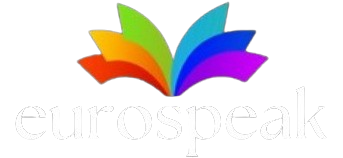Embarking on the journey to prepare for the B1 exam is an exciting and important step towards language proficiency. At Eurospeak English Language School, we understand the significance of effective study techniques in achieving success. In this blog post, we’ll share valuable tips to help you prepare efficiently and confidently for the B1 exam.
1. Create a Structured Study Schedule:
- Set Realistic Goals: Break down your study sessions into manageable goals. Set specific targets for each session, whether it’s mastering a particular topic or completing a set number of exercises.
- Consistency is Key: Establish a consistent study routine. Whether it’s daily or several times a week, maintaining a regular schedule helps build a habit and ensures steady progress.
- Balance Skills: Allocate time to each skill area – reading, writing, listening, and speaking. A balanced approach ensures comprehensive preparation for the exam.
2. Utilize Flashcards for Vocabulary Building:
- Create Topic-Specific Flashcards: Identify key vocabulary related to common B1 exam topics. Create flashcards with the English word on one side and the translation or definition on the other.
- Review Regularly: Incorporate flashcard review sessions into your study routine. Regular reinforcement is crucial for retaining new words and expressions.
- Use Technology: Explore flashcard apps that allow you to organize, review, and test yourself on the go.
3. Practice with Past Papers:
- Familiarize Yourself with the Format: Access past B1 exam papers to understand the structure, question types, and time constraints. This familiarity will boost your confidence on the actual exam day.
- Identify Weaknesses: Analyze your performance on past papers to identify areas that require improvement. Focus on refining those skills during your study sessions.
- Simulate Exam Conditions: Practice under exam conditions, including timing yourself and adhering to the rules. This prepares you mentally and physically for the actual test environment.
4. Engage in Regular Speaking Practice:
- Native Speaker Conversations: If possible, engage in regular conversations with native speakers. This exposure helps you adapt to different accents, improve pronunciation, and enhance your overall speaking skills.
- Conversation Partners: Partner with fellow students or language exchange buddies to practice speaking regularly. This provides a supportive environment for mutual improvement.
- Record Yourself: Record your spoken responses and listen for areas of improvement. This self-assessment can help you identify and address specific challenges.
5. Use Modern Technology Tools:
- Online Language Platforms: Explore language learning platforms and apps that offer interactive exercises, quizzes, and lessons tailored to the B1 exam. These tools make learning engaging and accessible.
- Virtual Classroom Sessions: Take advantage of virtual classroom sessions offered by Eurospeak. These sessions provide additional opportunities for interactive learning and practice.
- Digital Learning Resources: Access digital resources, such as e-books, online articles, and audio materials, to supplement your study materials.
6. Join Study Groups for Peer Support:
- Collaborative Learning: Join a study group with fellow B1 exam candidates. Collaborative learning allows for the exchange of ideas, tips, and insights, creating a supportive community.
- Peer Feedback: Share your progress with study group members and seek feedback. Peer perspectives can offer valuable insights and alternative approaches to learning.
At Eurospeak English Language School, we believe that effective preparation is the key to success in the B1 exam. By incorporating these study techniques into your routine, you’ll be well-equipped to navigate the exam confidently and achieve your language proficiency goals. Remember, every study session is a step closer to mastering the B1 level. Happy studying!




